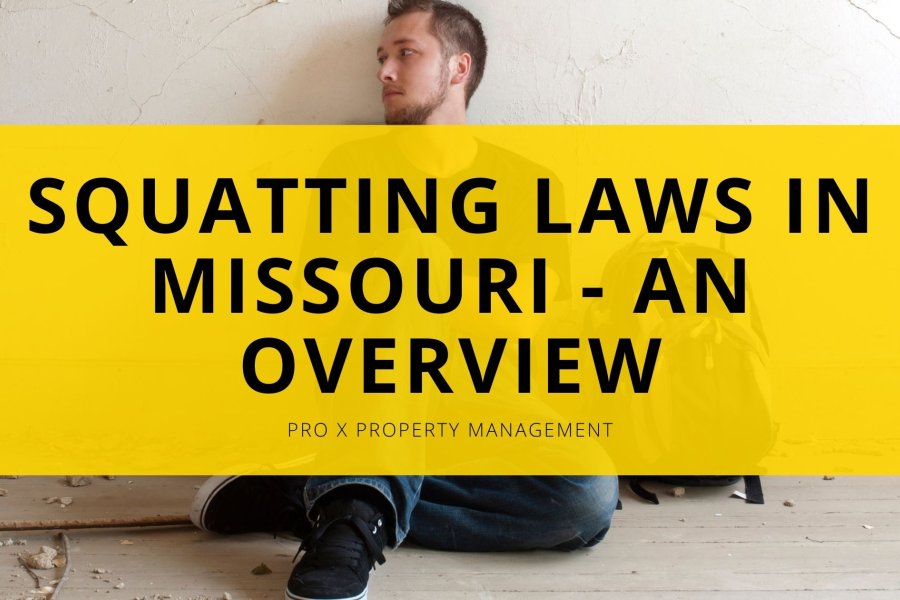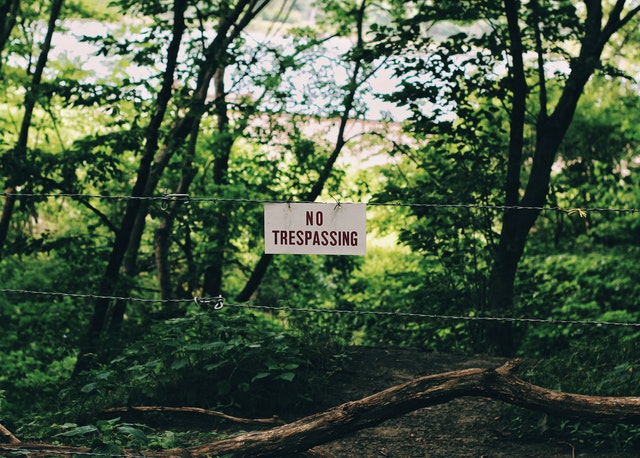
Did you know that a squatter can gain a legal title of ownership, through adverse possession, of your Missouri property? That’s right! Squatters have rights under Adverse Possession laws.
And worst of all, the process of removing a squatter from your property can be a frustrating, complicated process.
In this article, the team at Pro X Property Management will take you through everything you need to know about squatters rights in Missouri so as to stop them on their tracks.

Who is a Squatter?
Under Missouri adverse possession laws, a squatter is someone who neither rents nor owns the property they are occupying. Usually, the property is either abandoned or foreclosed upon.
What is the Difference between Squatting and Trespassing?
Squatting is civil in nature. It only becomes a criminal offense if the person who has legal ownership establishes the squatter is no longer welcome.
When someone illegally crossess property lines however, it is a criminal offense. It occurs when someone knowingly enters another person’s property without permission. In Missouri, trespassing in the first degree is a class B misdemeanor. And, the penalty is a maximum of 6 months in the county jail and a $500 fine.
What about a Holdover Tenant?
As per Missouri adverse possession laws, a holdover tenant is also referred to as a tenant at sufferance. They are tenants who continue living on their rental property after their lease has expired.
As the rightful owner of a property, you have two options when dealing with a holdover tenant. One of the options is to continue renting to the tenant. The tenant will continue renting the property under the existing rate and terms.
The other option is to evict the tenant. You must first serve them with an eviction notice, specifically a notice to quit. If the tenant doesn’t leave, you can subject them to a lawsuit for unlawful detainer.
It’s also important to note that a holdover tenant forfeits their right to make adverse possession claims once they have been asked to leave. At that point, adverse possession is not an option as they become criminal trespassers.
Do Squatters have to Pay Property Taxes in Missouri?
In some states, to progress adverse possession cases, it’s mandatory for squatters to pay taxes on the property in order to file for adverse possession. While in others, the required possession period will be reduced if a squatter has been paying taxes.

In the state of Missouri, squatters don't have to have paid taxes for there to be an adverse possession issue.
What does Color of Title mean?
This is an important legal term when it comes to property law and adverse possession. It basically means that the true owner of a property doesn’t have all the required documents or registrations required for proper ownership.
In some states, color of title is a requirement for adverse possession. This is, however, not a requirement by Missouri courts.
What are the requirements for an adverse possession claim in Missouri?
A squatter must meet certain requirements in order to make a claim of adverse possession. The requirements are as follows.
- Continuous Possession. A squatter must reside within the property line for the statutory period of at least ten years in order to make an adverse possession claim. This entire period of ten years must be uninterrupted for claimant's possession to be considered.
- Exclusive Possession. The trespasser must possess the Missouri land exclusively. Sharing it with other people, including the property owner, would nullify their adverse claim.
- Actual Possession. A squatter must also be physically present on the property. They must also treat the property just like the real owner would. Examples of actual possession include maintenance and beautification efforts.
- Open and Notorious Possession. The squatter must make their occupation obvious to anyone, which is known as open and notorious posession. Even the property owner conducting the investigation should be able to tell there is a squatter living on their property.
- Hostile Claim. Within legal doctrine, “hostile” takes on three different definitions. They are: Simple Occupation, Awareness of Trespassing, and Good Faith Mistake. Most states tend to go with the first definition: Simple Occupation. It defines “hostile” as a simple occupation of the land. It assumes that the squatter doesn’t know who the actual property owner is or has made an innocent mistake living on somene else's land.
How can you get rid of squatters in Missouri?
Missouri, just like most other states, doesn’t have special laws regarding squatters’ removal. Therefore, to evict a squatter, you’ll need to go through the state’s eviction process, which is outlined in the landlord-tenant laws.
The first thing you’ll need to do is serve the squatter with an eviction notice, specifically the Demand for Rent notice. This will give the squatter the option of paying all due rent or leaving. Alternatively, you can serve the squatter with a 10-Day Notice to Vacate.

If the squatter doesn’t move out after the notice period is over, you can go ahead and file their eviction in court. The squatter will have an opportunity to present their defense in court during the hearing. Generally, though, without any legal paperwork, the squatter will have almost nil chances of winning the case.
After a successful ruling, the sheriff is the only person mandated by law to carry out a physical eviction. In other words, you must not try to self-evict the squatter in any way, because it goes against the law. Turning off their utilities, changing locks or using any other “self-help” eviction tactics is illegal.
The Bottom Line
At Pro X Property Management LLC, we’re well versed in Missouri squatters laws. Our goal is to help property owners achieve peace of mind by helping them keep their properties occupied by qualified tenants. Get in touch with us to learn more!
